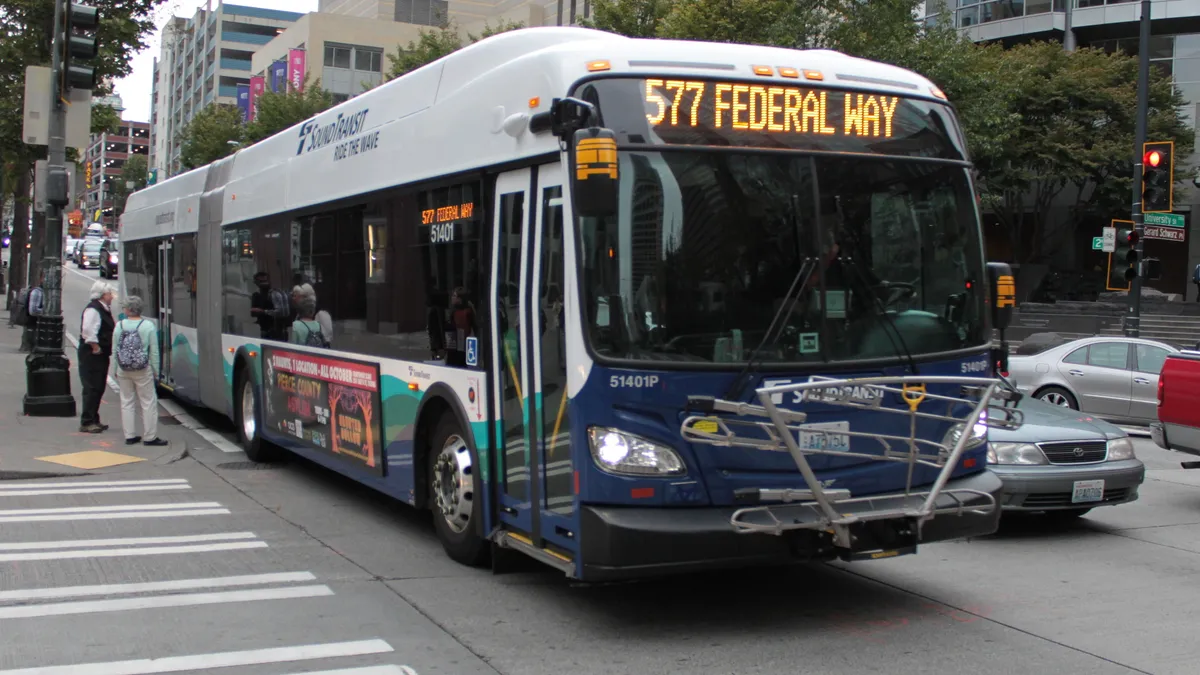UPDATE: June 27, 2018: The Seattle City Council unanimously approved a plan to provide free transit passes to all of the city's public high school students, according to the Seattle Times and others.
Up to $7 million in Seattle Transportation Benefit District (STBD) funding will provide passes for about 16,000 high school students, in addition to the 3,000 low-income middle and high school students — and students who live more than two miles from school — already served under the program. The average youth pilot program participant saved more than $200 during the last school year. Passes will be available to students starting this upcoming school year.
The legislation also allows city leaders to use more STBD money to increase the frequency and reliability of the city's most used bus routes. The measure's language lessens the number of stops that must occur within city limits from 80% to 65%. That creates room for more investment in routes that run in neighborhoods outside the city limits, which better serves residents along Seattle's outskirts.
This move is viewed as important due to the increased demand for public transit as the city's population continues to boom, and a lack of capacity that is leading to overcrowding on popular transit routes.
Dive Brief:
- The Seattle City Council's transportation committee approved a plan to give free transit passes to all students at the city's public high schools and those attending Seattle colleges on city-funded scholarships. If finalized, Seattle would become the largest city in the country to offer the transit benefit, which would cover some 16,000 high schoolers.
- The mayor’s office had requested $5 million to cover high school and college students, but the legislation approves up to $7 million, leaving enough money to potentially give all K-12 students transit passes.
- The full city council must approve the plan; full consideration is expected in the coming weeks.
Dive Insight:
Seattle’s transit agency is in a situation unfamiliar to most American cities: it has too much money. A 2014 ballot measure that added a car tab fee and a 0.1% sales tax has brought $50 million a year to the King County metropolitan area, leading to more buses and service hours. The student pass plan would draw from that pool.
The proposal also comes as Mayor Jenny Durkan has promised to be “creative” about getting residents onto public transit and out of cars, warning "traffic’s going to get worse before it gets better; megaprojects will mean mega-gridlock."
Seattle has some anecdotal evidence that the passes will result in higher transit ridership. The city already gives free passes to students who live more than two miles from school or come from low-income families; a survey last summer found that 90% of those use the passes at least three days a week, and 69% use them more than five days a week. A majority also said the passes helped them get to school, and 40% said they wouldn’t use transit if not for the free pass.
Research from Rutgers and Columbia University has show that bus and train ridership in early years makes people more likely to rely on transit later in life, making students a prime target for cities looking to expand public transportation. Cities like Washington, DC and Portland, OR already offer free transit to students during the school year (Seattle’s would be year-round) and New York City has a limited number of free metro cards. Seattle’s would be the largest program in the country and could herald more exploration of free transit for other groups. Paris has even studied free transit for all citizens.











